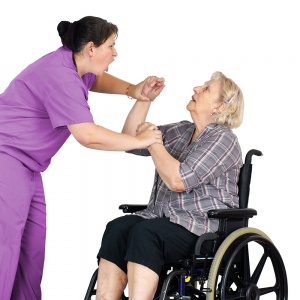Safeguarding alerts in homecare services

A media release sent from United Kingdom Health Care Association reads as follows:
BBC radio's "File on 4" course today (28 February 2016) provides figures about allegations of abuse by homecare workers, obtained under Freedom of Information legislation from around half of the UK's local councils (including the health and social care trusts in Northern Ireland).
The data covers just over 23,000 safeguarding alerts reported to councils over the last three years, of which over half related to the broad category of 'neglect'.
Bridget Warr CBE, chief executive of the United Kingdom Homecare Association (UKHCA) said:
"It is extremely important that people are able to raise concerns about their care, or the care received by family members. It is vital that concerns are investigated, even where they may be trivial, or prove to be unfounded.
"Wilful acts of abuse and neglect are never acceptable, and those who deliberately abuse older and disabled people should expect to be removed from the workforce and face prosecution, where appropriate."
However, Mrs Warr also drew attention to a state-funded care system close to breaking point because of cuts to local councils' budgets:
"Councils buy almost three quarters of all homecare delivered. Budget cuts have led many councils to ration the amount of time allowed to provide care. This can create a rushed and undignified system, which is unsuitable for frail, older and disabled people.
"A social care system which is grossly underfunded will not be able to meet the standards we all expect. It is a matter about which Government has received repeated warnings that must be addressed urgently."
EduCare has trained over a million people in safeguarding, including education inspectorates, faith advisory services, charities, the ambulance and fire service and the NHS, to ensure staff feel confident to meet their legal responsibility to protect people from abuse.
We work with many care providers to help ensure staff are trained quickly and cost-effectively to both put the patient's needs at the centre of their care but also to spot any signs of abuse and report through the appropriate channels.
Return to news